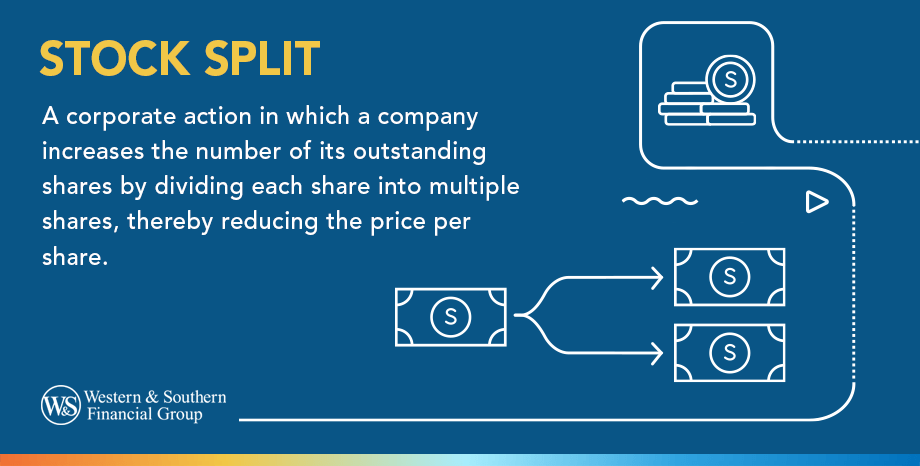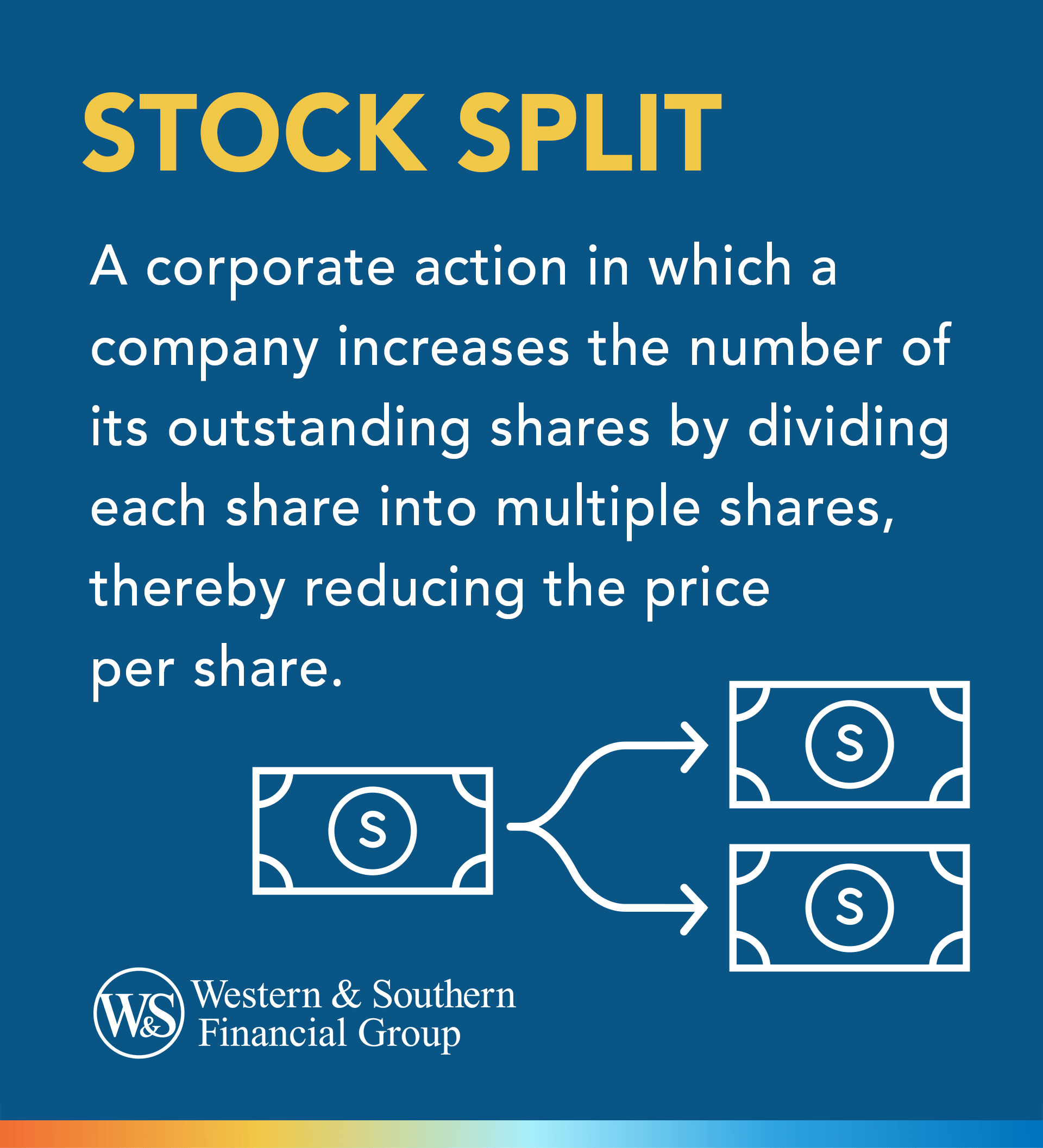Table of Contents
Table of Contents


Key Takeaways
- A stock split increases the number of shares outstanding by splitting each existing share into more shares.
- The stock price is adjusted down proportionately when a split occurs so market capitalization stays the same.
- Splits make stocks more affordable and can potentially increase liquidity.
- Splits do not directly change the fundamentals or intrinsic value of a company.
- Investors should evaluate stock splits in the context of their investment goals and overall strategy.
There are different types of stock splits and various answers to the question, "why do stocks split?" Here's some information on what this action means.
When Does a Stock Split?
A stock split occurs when a corporation decides to increase its total number of outstanding shares. The increase in shares is expressed by a ratio, such as 2-for-1, 3-for-1 or 3-for-2, and the share price of the stocks is adjusted accordingly. For example, in a 2-for-1 stock split, the total number of outstanding shares would double and the share price would be cut in half.
Reverse Stock Split
Although a stock split that increases the total number of shares outstanding is more common, a reverse stock split also occurs. Reverse stock splits decrease the number of shares outstanding and increase the share price of the stock. For example, a 1-for-2 reverse stock split would cut the number of shares in half and double the share price.
Reasons Why Stocks Split
Understanding how a stock split works is crucial. A company may initiate a stock split for a few reasons:
- To reduce share price: If a stock has a high share price, a company may choose to issue a stock split to make the shares more affordable to individual investors.
- To increase liquidity: A stock's liquidity refers to how easy it is to buy and sell shares in the market. A stock priced at $10 per share might be easier to trade than a stock priced at $1,000 per share.
The action of a stock split itself does not change the intrinsic value of a company. Stock splits do reduce the share price of a stock, but they do not directly affect the market capitalization or any fundamental valuation metric. Reducing share price and increasing liquidity are some of the reasons why stocks split.
Benefits to a Stock Split
- Some companies split stocks when the stock prices are high in order to lower share prices and make the stock more accessible to investors. As an investor, you may be able to afford to buy more shares after a stock split. However, it's important to note that a stock split alone is not an indication that a stock is a better value because of previous growth or because of a lower price.
- A stock split does not change a company's market capitalization. This is the primary means of measuring the total value of a company's stock, known as market cap.
A company's stock market capitalization is calculated by multiplying the total number of outstanding shares by the price of the stock. For example, if a company had 10 million shares outstanding at a price of $50 per share, it would have 20 million shares outstanding at $25 per share after a 2-for-1 split. The market capitalization, which is $500 million, does not change. Investors might keep their overall investment strategy in mind — reevaluating as they see fit — and continue to base buying and selling decisions on their unique goals while considering all of the information available.
The Bottom Line
Stock shareholders can grow their investment skills by understanding stock splits. However, investors should not assume that stock splits are always a signal to buy more shares of the respective stock. Stocks and similar investments can't guarantee future growth, and may not even hold their principal value. Investors might find it useful to consult with a financial professional about their investment goals following a stock split, or at any time in their financial journey.





















